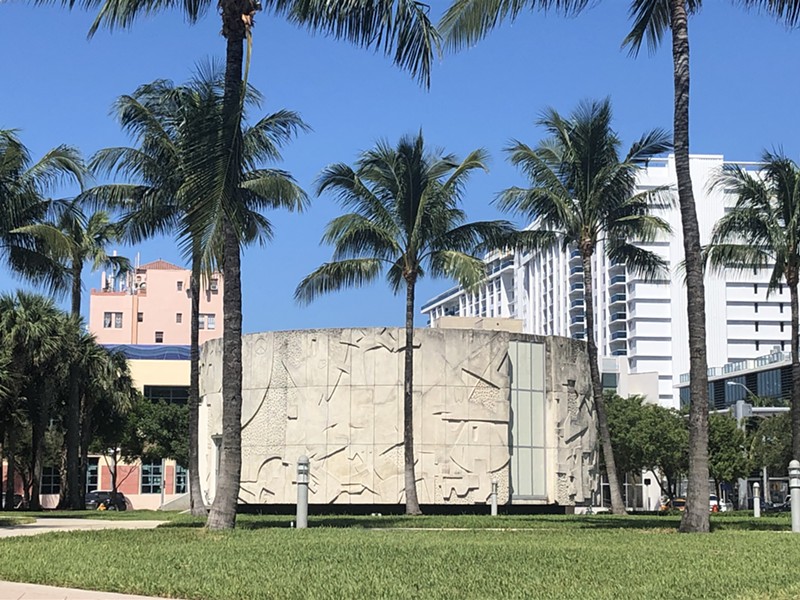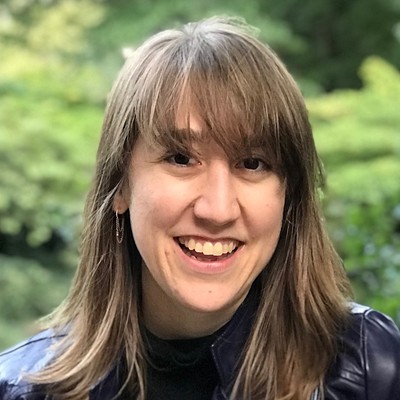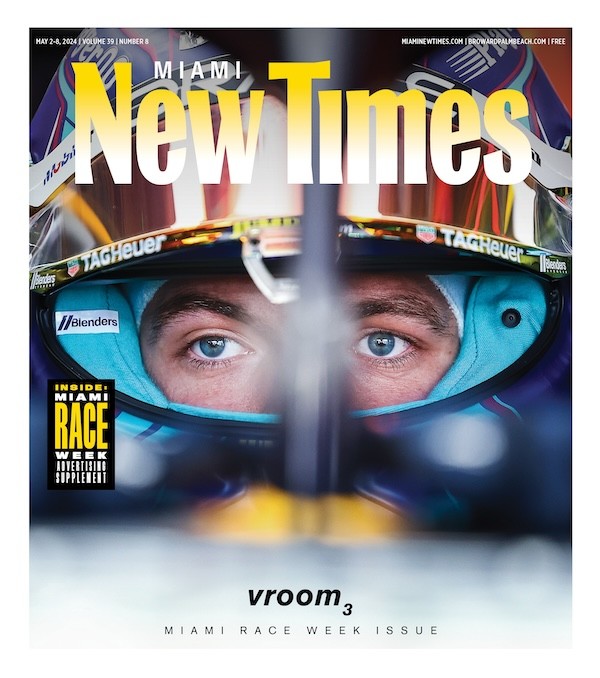That soothing feeling of escaping from the outside world for a moment was intentional, the installation's creator, Misael Soto, says. “I tried to give it this look and feel of 'city government meets the UN meets an art exhibition,'” Soto says, “and tried to think of it as a space that can hopefully seduce you in a way and calm you into some inward and outward reflection.”
Designed to resemble the interior of a government office — complete with a large round meeting table and chairs, a bulletin board, and a water cooler with cups — the idea for the space came to Soto after the artist began working in the city manager’s office with the Environment and Sustainability Department last summer. As the Art in Public Life resident, through a partnership between Oolite Arts and the City of Miami Beach, Soto has been researching the climate crisis and sea-level rise, learning more about Miami’s municipal government by working closely with its officials, and creating public art projects such as last fall’s Sand: Amphitheater, Theater, Arena.

Department of Reflection is a symbolic office space that invites visitors inside Misael Soto’s process as an artist, asking viewers to question what’s “real” and what it means for something to be “official.”
Photo by Suzannah Friscia
The result is a symbolic office space that invites visitors inside Soto’s process as an artist, asking viewers to question what’s “real” and what it means for something to be “official.” Upon entering the installation, guests encounter a variety of ways to interact with the contributions of the artists who collaborated on the project, beginning with mosaic work by Sebastian Duncan Portuondo.
A piece by Archival Feedback invites guests to sit on a chair made of sandbags and listen to recordings of shoreline sounds through a pair of headphones. Along one part of the wall, six clocks show the time in six cities, all of which are in coastal areas that sit at low sea level and have already begun to experience the negative effects of rising tides.
Dozens of handwritten notes line the wall like a horizon. It's part of Laurencia Strauss’ The Bubble Pops, a project in which participants jot down their advice for handling adaptive experiences such as immigrating to a new country or surviving a hurricane. Pairs of visitors can rent the Advice Bike, a tandem bicycle that sits in the Department of Reflection, and listen to advice through speakers while they practice working together as one steers and the other pedals.

Clippings and collages inside the installation invite guests to explore the city's past and present iterations.
Photo by Suzannah Friscia
Some of the pieces were first presented as part of Soto’s Sand series, but viewers have a chance to engage for a longer term at the Department. Other details, such as the small basketball hoop connected to a mini Bookleggers Library cart, were taken directly from Soto’s experiences at Miami Beach City Hall. (Mayor Dan Gelber is known for his love of basketball.)
Soto playfully draws inspiration from city government while parodying it a bit too. The artist purposely built the circular table so large it would be difficult to conduct a productive meeting there because people sitting across from one an other would be too far away. “I really wanted to allude to the responsibility to community that is civic engagement,” Soto says, “but also make it too big, to where you have to go back inward and really talk to the person next to you or just talk to yourself.”
The reception desk at the entrance, too, was intentionally made too tall to serve its typical purpose. It’s more of a partition, with no one there to greet guests or tell them where to go. “It’s kind of this collapsing of the structures that are supposed to tell us how to interact with one another, and then hopefully creating space that reminds you of your own agency,” Soto says.
Department of Reflection is open to the public every Saturday through October 26. Community members are invited to propose programming or request the space for meetings and events. Soto hopes it will help inspire the artist's next work. Soto also notes it can serve as a model for similar Department installations in other municipalities. For now, the space is a continual experiment and a work in progress. “Hopefully, by creating my own department, I can affect all of the departments and elected officials from there,” Soto says, “and through this veneer of officiality, try to make everyone see that the climate crisis is everyone’s job.”
Misael Soto's Department of Reflection. Open 2 to 6 p.m. every Saturday through October 26 in the rotunda at Collins Park, 2100 Collins Ave., Miami Beach; departmentofreflection.org. Admission is free.












